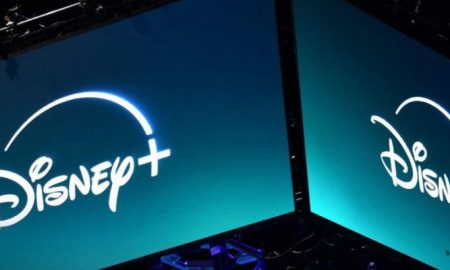
How ChatGPT Is Fueling America’s Fastest-Growing Job Sector

The job market is evolving, and one field is standing out above the rest—artificial intelligence (AI). Over the past two years, AI-related job postings have surged, largely fueled by the rise of ChatGPT and similar technologies. With industries increasingly integrating AI into their operations, professionals with expertise in this area are in high demand.
AI Job Growth in Numbers
Recent data from the University of Maryland and job-tracking firm LinkUp reveals a sharp increase in AI-related job postings. Since late 2022, listings in this field have grown by 68%, even as overall job postings across industries have dropped by 17%. On ZipRecruiter, AI job postings saw a 124% rise from 2023 to the end of 2024.

Instagram | matlensilver | The AI job market exploded, showing a 68% growth since late 2022.
LinkedIn’s latest job trends report also highlights AI-related roles as the fastest-growing jobs in the U.S., with positions like AI engineer and AI consultant topping the list. A separate study from PwC further supports this, showing that jobs requiring AI expertise are expanding at a rate three times faster than other roles.
Why AI Jobs Are Booming
The rise of AI-powered tools has reshaped various industries, prompting companies to seek professionals skilled in machine learning, natural language processing, and AI development. This shift has led to a decline in traditional IT job postings, which have dropped 27% since 2022.
While AI is generating new job opportunities, it has also played a role in workforce reductions. Tech companies investing heavily in AI have made significant layoffs, sometimes due to automation replacing human roles. In early 2024, a major tech firm reduced its workforce in its AI assistant and hardware divisions, just months after committing a multibillion-dollar investment in AI development.
Additionally, a recent World Economic Forum survey found that 41% of employers plan to downsize certain roles in favor of AI-powered systems by 2030.
Global Competition in AI
The AI race is not confined to the United States. Companies worldwide are competing to develop more efficient and cost-effective AI models. A recent example is a Chinese AI startup that introduced a powerful new model at a fraction of the cost of its American counterparts.
This open-source approach allows businesses worldwide to access and build upon the technology, accelerating AI adoption across multiple industries, including banking, insurance, manufacturing, and agriculture. Experts predict that this will lead to even faster AI integration into various sectors.
Corporate Investments in AI
Major corporations continue to allocate substantial budgets to AI infrastructure. A leading tech company recently announced plans to invest $80 billion in AI data centers, while a newly formed partnership between top tech firms is set to invest up to $500 billion in AI development over the coming years.

Freepik | frimufilms | The demand for AI talent is surging in consulting and diverse business sectors.
Beyond tech companies, the demand for AI professionals is growing in consulting firms as well. Many businesses rely on AI consultants to integrate machine learning into their operations. In a survey conducted by a global accounting firm, 97% of business leaders reported positive returns on AI investments.
Efficiency and Workforce Changes
While AI-related job opportunities are increasing, hiring in other sectors has slowed. Many companies are now focused on maximizing efficiency, reducing unnecessary roles, and centralizing business functions.
Hiring patterns are also shifting geographically. More U.S. companies are outsourcing high-skilled positions to international workers, particularly in tech and consulting roles that can be performed remotely. A workforce analytics firm recently reported that offshoring has become a more attractive and cost-effective option for businesses.
What’s Next?
Despite concerns about AI replacing jobs, some experts believe that technological advancements will lead to changes in work structure rather than mass unemployment. Looking at historical trends, work-life balance has evolved over time—once, six-day workweeks were standard, but today, a five-day workweek is the norm. Some analysts predict that AI-driven efficiency could eventually pave the way for a four-day workweek in the future.
The AI job market shows no signs of slowing down. As companies continue investing in artificial intelligence, professionals with AI skills will remain highly sought after, making this field one of the most promising career paths for years to come.
More in Business
-
`
US Opposes Hezbollah Ally’s Appointment to Lebanon’s Finance Ministry
The United States is actively pressuring Lebanese officials to block Hezbollah and its allies from selecting the country’s next finance minister....
February 12, 2025 -
`
Ed Sheeran Becomes the First International Artist to Perform in Bhutan
Ed Sheeran has achieved a groundbreaking milestone in his music career. The “Bad Habits” singer, 33, became the first international artist...
February 5, 2025 -
`
New Jersey Issues Warning to 11,000 Businesses for Selling Flavored Vapes
In New Jersey, flavored vape products are illegal, but thousands of businesses continue to violate the law. According to Attorney General...
January 29, 2025 -
`
Why Prince Harry and Meghan Markle Hide Their Children’s Faces Online
Prince Harry and Meghan Markle remain two of the most talked-about public figures, yet their approach to sharing details about their...
January 22, 2025 -
`
Why Are Innovation Hubs Crucial for Entrepreneurial Success?
Innovation hubs are transformative spaces that empower entrepreneurs by providing the resources, mentorship, and collaborative environments needed to turn their ideas...
January 14, 2025 -
`
How to Finance an ATM Business in 3 Easy-to-Follow Steps
Starting an ATM business can be a fantastic way to earn passive income, but the first hurdle is figuring out how...
December 19, 2024 -
`
Former RXBar CEO Peter Rahal is Betting Everything on New Protein Bar Startup, David
Peter Rahal, the visionary entrepreneur behind RXBar, is back with a bold new venture. After selling RXBar to Kellogg’s for a...
December 15, 2024 -
`
Can investing in Nvidia Still Offer Value After Its Explosive Growth?
This year, Nvidia has been one of the stock market’s most impressive performers. Starting at $50 per share (split-adjusted) in January,...
December 6, 2024














You must be logged in to post a comment Login